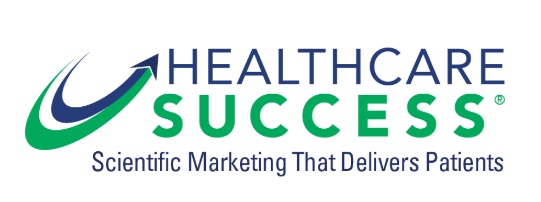
Our team at Healthcare Success is currently advising clients about how they should adjust their marketing efforts in response to the COVID-19 national emergency, and I thought I would share some of our thinking with readers like you as well.
These are fast-changing and confusing times. Remember, SXSW was canceled just days ago on March 6. By March 9, multiple California universities had suspended classes. On Saturday, March 15, the US Surgeon General advised hospitals to avoid elective surgeries. On March 16, 2020, President Trump urged Americans to “Avoid gathering in groups of more than ten people.”
If you represent a hospital, chances are your medical leadership is bracing for a likely rush of COVID-19 patients. Marketing professionals need to think first about things like how to support the hospital’s leadership role in the community, how to use the hospital’s resources to inform the public (including social media, websites, and advertising), and how to prepare for any crises that might arise.
Healthcare practice leaders must decide first whether or not it makes sense to stay open during the COVID-19 crisis. That decision will vary based upon the specialty, practice philosophy, and circumstances. Clearly, those medical specialties that serve patients with pressing, serious health needs will need to stay open, while other elective-based medical practices may decide to close partially or fully during the crisis. As of yesterday, for example, the California Dental Association, “Strongly recommends that dentists practicing in California voluntarily suspend nonessential or non-urgent dental care for the next 14 days.”
“How Should We Adapt Our Medical Marketing Efforts and Budget During the COVID-19 Emergency?”
Every hospital and practice is unique, but here are some guidelines to help you think through the various issues. Before we proceed, let’s clarify that when we speak of marketing, we are not thinking of just advertising.
I would argue that hospitals and larger medical practices cannot “not market.” Some marketing issues, like branding, doctor referrals, and patient experience, need to be ongoing. Remember, hospitals continually influence their brands by their patient experience and the services they provide to the community.1. Branding, 2. Digital Marketing, 3. Traditional Advertising, 4. Doctor Referral Marketing/Building, 5. Internal Marketing/Patient Experience, and 6. Public Relations (including press and community communications).
What’s more, hospitals will want to make sure their public relations teams are communicating openly and proactively to their respective communities through the local and regional press during these unsettling times.
You may then ask, “What about our digital marketing and traditional advertising?”
Let’s consider digital marketing strategies first.
9 Tips to Guide Your Healthcare Marketing Going Forward
Here are some additional, critical tips to consider:
Right now, it is essential to both serve and inform the public. It is also an opportunity to ethically and effectively position your hospital or practice for the future.

Stewart Gandolf, Chief Executive Officer & Creative Director
The original version of this page was published at: https://healthcaresuccess.com/blog/healthcare-marketing-leadership/healthcare-marketing-adjustments-you-should-make-in-response-to-covid-19.html
Founded in 2006, Healthcare Success is a respected, full-service brand performance marketing agency focused on healthcare and recognized as a thought-leader in the industry.
Healthcare consumerism has drastically changed the way healthcare professionals need to market and deliver their services. Today’s consumers expect a healthcare ...read more
We’re living through a seismic shift in how physicians deliver medical care in the United States. Here’s a brief timeline:In 2012, 60.1% percent of physicians ...read more
Direct mail is not dead.At a time when email inboxes are overflowing, how else can you reach prospective patients in your area without overwhelming them?In fact, a piece of healthcare-related ...read more
The first thing I do when I see healthcare news that interests me or scares me (or both) is go online and try to find more information. It’s a common modern reaction to search ...read more